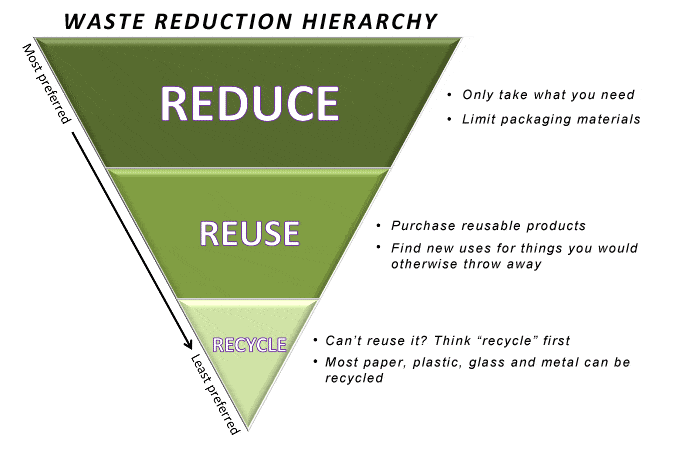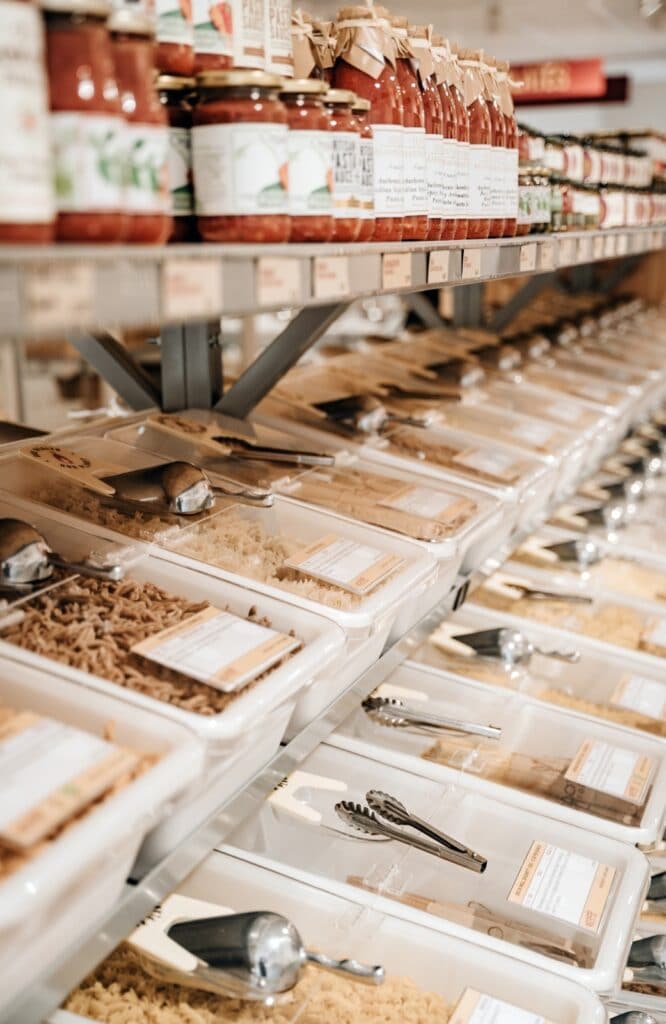The R’s – Refuse, Reduce, Reuse, Re-Purpose, Rot…….then Recycle
There are many R’s you should think about and use before you get to recycling, but we also need to know how and when to recycle in order to help solve the plastic problem and in turn climate change. We will also go on to explain how zero waste shopping can reduce your environmental impact.
“There’s no silver bullet to stop plastic pollution. We’re not going to be able to recycle our way out of the problem, and we’re not going to be able to reduce our way out of the problem.” (Kaplan, 2018).
We have to pursue both those tracks while seeking new solutions at the same time.
Recycling can be very energy demanding and often not as straight forward as we are all led to believe. Recycling can also lull the public into a false sense of security on solving all the world’s environmental problems. However, most experts say it is a valuable tool in the fight against climate change, pollution, and other major issues our planet now faces.
However, a quarter of everything put in recycling bins ultimately can’t be recycled.
What do you do if there are two materials on the same piece of rubbish? Do you separate them before discarding to make sure that each piece gets recycled properly? Do you clean out all your bottles and yoghurt pots properly before throwing them out?
The efficiency of recycling greatly differs depending on the material being recycled. Glass and metals, including aluminium, glass and aluminium can effectively be recycled indefinitely without a loss of quality. However, plastic on the other hand, is complex to recycle because of all the different types. Only 14% of all plastic packaging is actually recycled.
The best recycling is closed-loop: Cans and glass bottles are recycled into more cans and bottles, which are in turn recyclable.
However, it is important to remember that the most effective way to reduce waste is to not create it in the first place.

Benefits of Reducing and Reusing
- Prevents pollution caused by reducing the need to harvest new raw materials
- Saves energy
- Reduces greenhouse gas emissions that contribute to global climate change
- Helps sustain the environment for future generations
- Saves money
- Reduces the amount of waste that will need to be recycled or sent to landfills and incinerators
- Allows products to be used to their fullest extent
One of the best ways to reduce the amount of waste you generate is by shopping at zero waste shops. Zero waste shopping helps is a number of ways, which we have listed below.
How to cut plastic and single use items out of your daily routine.
Health and beauty products
- Swap your plastic toothbrush with a bamboo one
- Invest in a reusable metal/bamboo razor.
- Swap your facial wipes for a reusable cloth.
- Buy hair-care products and soaps from refill shops. (The same goes for laundry detergent and cleaning products. Also, look for options sold in concentrate.)
Kitchen basics
- Ditch cling film and small plastic sandwich bags. Instead, opt for reusable food containers, washable fabric pouches and reusable food wraps.
- Stock up on washable towels and cloth napkins instead of kitchen roll and disposable napkins.
- Refuse plastic shopping bags or other plastic packaging and instead invest in a few cotton/jute reusable bags.
- Avoid dishwasher tablets or other products, like sponges, that come individually wrapped.
On-the-go accessories
- Carry reusable, BPA-free water bottles and reusable coffee mugs.
- Get stainless steel or other reusable straws for your smoothies and other drinks.
- Keep a set of reusable cutlery where you work for use during lunch breaks.
- Carry lightweight reusable bags—or keep a set in your car.
Food Waste
One third of the food we produce goes to waste. Isn’t that a frightening statistic? The worst part is that it generates a huge waste of energy throughout the entire process, from farming, to transportation, to the methane released in it’s degradation, which is a potent contributor to climate change.
One of the greatest impacts you can therefore have on climate change on an individual level is to cut the amount of food waste you dispose of.
How to fight climate change by reducing your food waste:
- Freeze more and waste less. Freeze food you think you may not use up before its ‘use by’ date.
- Check the product before assuming it has gone ‘bad’.
- Buy what you need – plan your meals for the week. Shopping at zero waste shops is a great one for this, as besides the zero packaging, you can buy exactly what you need.
- If you can, create your own home food compost. If you have a garden or vegetable plot, once decomposed chuck it on the soil to improve its quality.
- Be creative with leftovers.
- Use up veg scraps to make broths and soups, use up fruit scraps to make crisps and vinegars, use up vegetable leaves, such as carrot leaves for pesto, and if your cabbage is looking a little past its best, make sauerkraut or kimchi.
We hope you have found these little tips helpful in helping you live a more sustainable, zero-waste lifestyle.
At Scoop Wholefoods we have tried to create a one-stop shop for you to buy all your plastic free foods, household items and beauty products that will help you live a zero waste lifestyle and reduce your environmental impact.
Remember we need a lot of people making little changes to their lifestyle instead of a few people living a perfectly zero-waste life.
Click here to visit our Bristol Shop
Click here to visit out Bath Shop
We also have lots of zero waste recipes that can help inspire you to live a more sustainable lifestyle.



